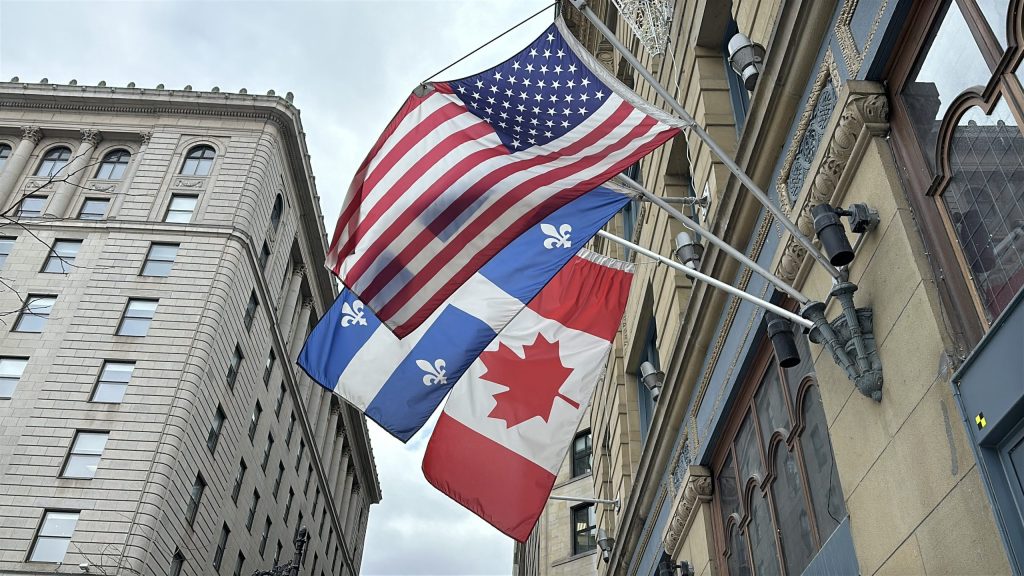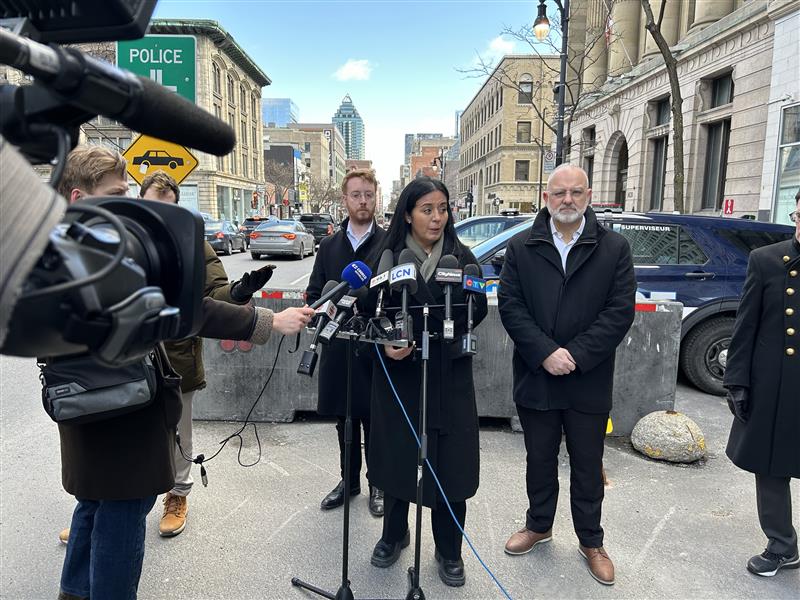Could vacant office buildings be the solution for the unhoused in Montreal?

Posted January 4, 2023 5:08 pm.
Last Updated January 5, 2023 11:47 am.
With the number of vacant offices buildings on the rise since the introduction of work from home at the start of the pandemic, could there be room for temporary or even permanent housing solutions for the unhoused in Montreal?
“It takes thousands of units to really try to address homelessness,” said James Hughes, the CEO of the Old Brewery Mission. “In Montreal tonight, there will be 4,000 people that are homeless minimum in the City of Montreal.
“So we need to think at a much higher scale.”
Downtown Montreal’s core is currently experiencing a 17 per cent vacancy rate of its Class A and Class B buildings – offices.
That number could climb to 29 per cent by 2027, according to consultants at Altus Group.
“Some of those older office buildings, the Class C buildings that were typically industrial buildings that were converted to loft offices… those building owners may want to look at converting them into residential properties and offer housing,” said Luciano D’Iorio, CDNGLOBAL Québec Regional President and Managing Partner, and Certified Real Estate Broker.
“Because some of them I can think of, some of them, they may also be ripe for density.”
RELATED:
- ‘Perfect storm’ of inflation, high prices driving more into homelessness: advocates
- Homelessness in Canada is still getting worse. What would actually make a difference?
- Volunteers help count Montreal’s homeless population
In other words, increasing the square footage on their site.
Class A and Class B buildings represent the highest quality of office real estate in the market.
Ranked lowest in the classification of office real estate are Class C buildings, which D’Iorio says would be ideal for re-development opportunities.
“There’s certainly a re-organization of the way we work and how we work,” he said. “And so the hybrid model is also here to stay.
“But I think there are opportunities right now in the market that some buildings that are probably at the end of their useful life can be repurposed and can be repurposed for housing needs and to help with some of that affordable and social housing that’s much needed right now.”
‘Appropriate, dignified housing’
It’s a reorganization Hughes says is feasible in a city like Montreal.
“We’re really good at converting hotels, churches and other types of buildings into housing,” said Hughes. “Why couldn’t we start to think about converting appropriate commercial class buildings as well? And maybe not just for housing, but maybe with multiple purposes that may really help to try to take some of the pressure out of the system, which is entirely being caused almost by this lack of affordable and appropriate, dignified housing that we don’t have available today.”
The City of Montreal tells CityNews they are exploring ways to meet the needs for affordable housing with its partners at homeless organizations, adding the use of vacant office spaces is one of the many approaches being explored with the city’s economic development department.
Hughes believes utilizing the extra space is a win-win for both the owners of these vacant commercial buildings and the homeless population.
“With the appropriate consultation and the appropriate regulation changes, I think we may have a real opportunity to increase quickly the stock of affordable housing, which is so rare right now,” he said.








